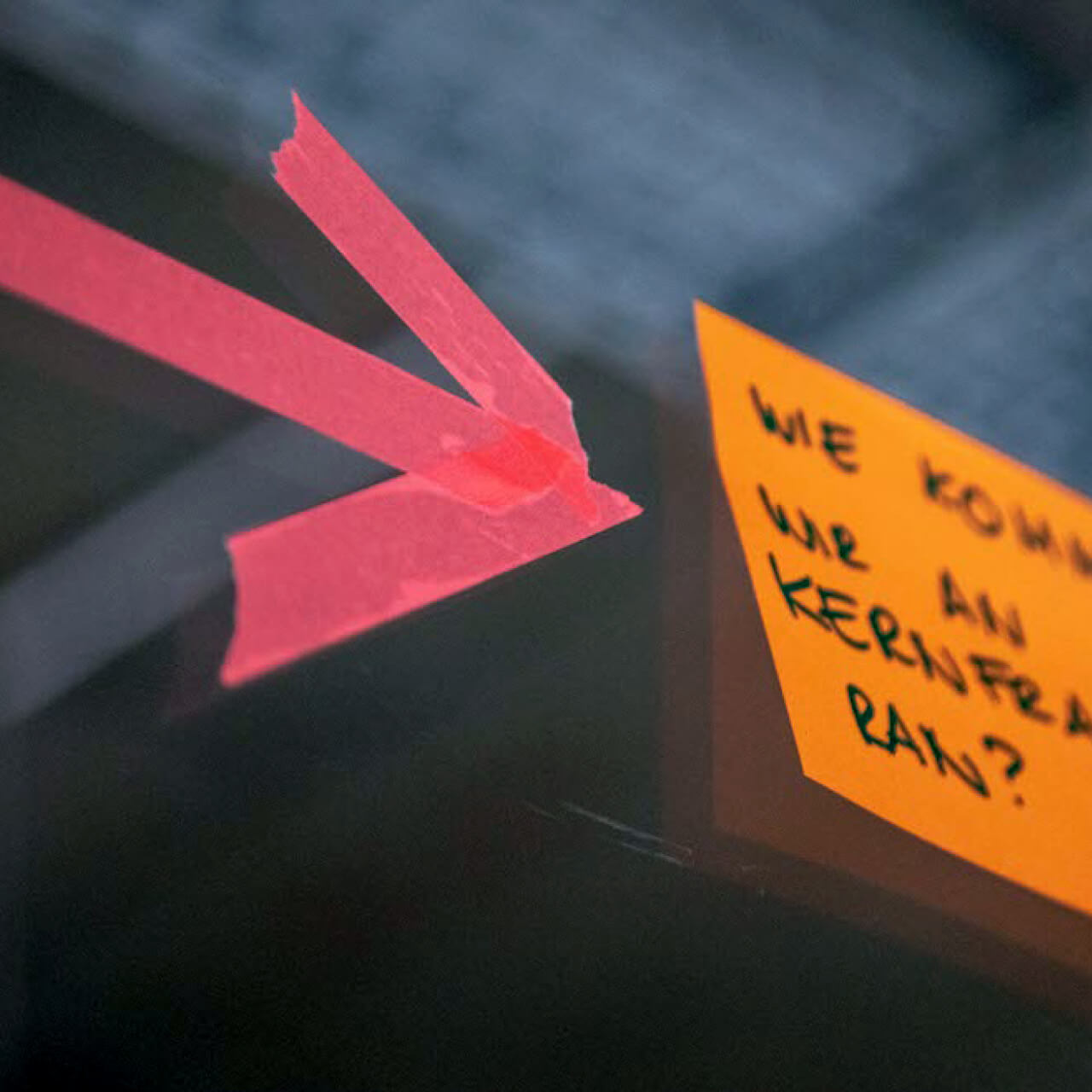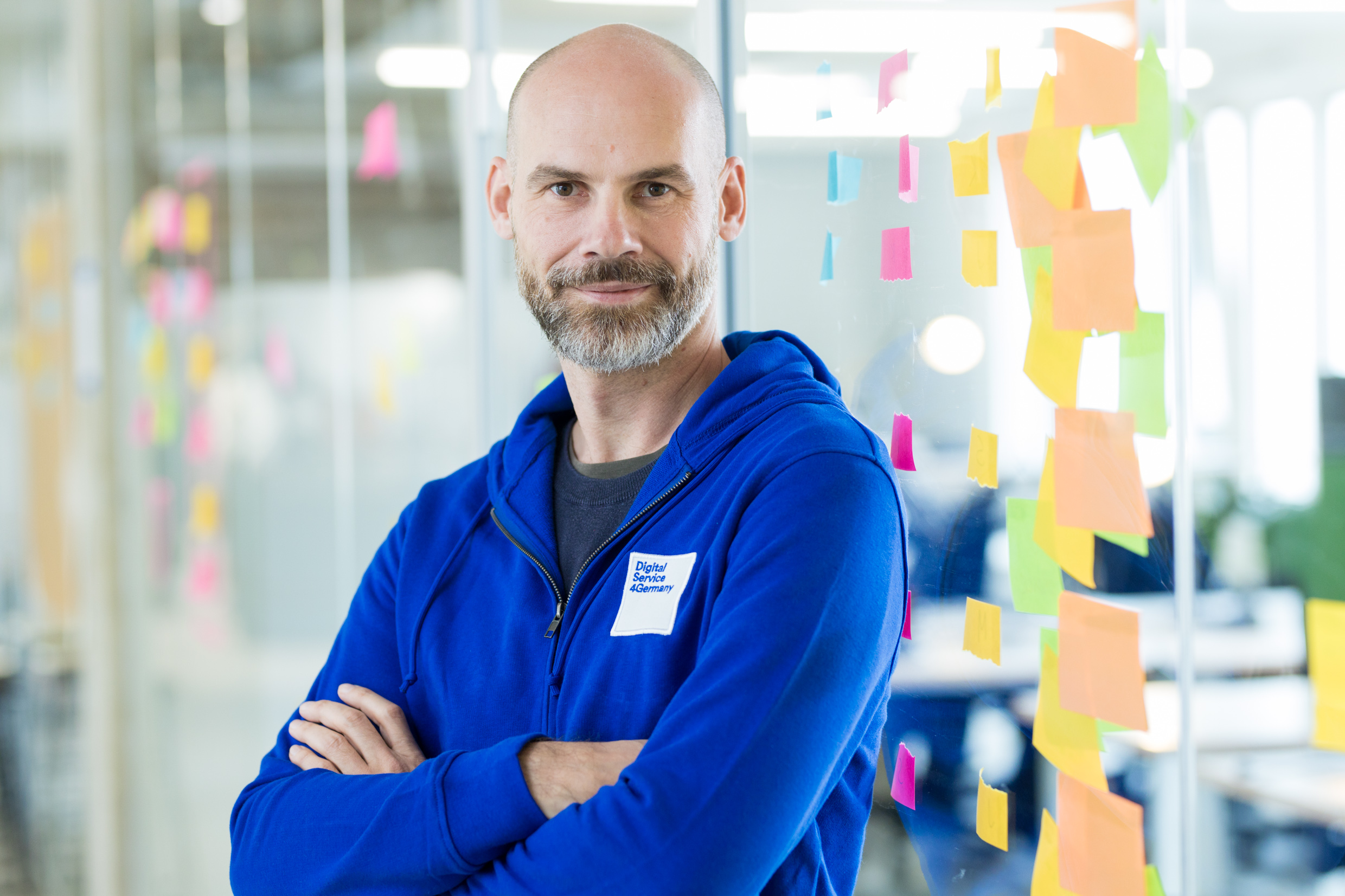
Digital access to justice: breaking down complexity
Equal rights for all – or maybe not after all? If you take a closer look at the average amount of damage that prompts citizens in Germany to begin to take matters to a court or law, it quickly becomes evident: claims or damages amounting to less than EUR 2,000 are rarely enforced. Many fear that the expenses involved will be excessive and the financial risk involved in a lawsuit too great.
Tech4Germany delivers prototype for a portal for the judicial system
But what if it were possible to assert claims online using simple digital tools? Couldn't this offer citizens much more just access to the judicial system? While at the same time making it possible for similar proceedings which inundate the courts en masse and require a very standardized judicial review to be tried before the courts much more efficiently? Take the enforcement of tenancy law matters, for instance.
This was precisely the approach adopted in the "Digital Paths for Lawsuits" project, which was launched in May 2021 in collaboration with the German Federal Ministry of Justice (BMJ) as an element of our Tech4Germany fellowship program. In the course of the user research, we realized that problems surrounding access to the judicial system crop up long before a lawsuit is filed. After only 12 weeks, a prototyp for a digital judicial system portal intended to enable citizens to enforce legal claims online was ready.
Next step: Discovery sprint
Shortly after the change in government, the German Federal Ministry of Justice decided to further refine the concept of online access to the judicial system, including digital management of proceedings. In addition to the prototype for the judicial system portal, preliminary work carried out for another project, "Chatbot for the legal application office", has also flowed into the effort. As a result of the insight obtained, especially from the perspective of users, the German Federal Ministry of Justice is planning to merge the two projects in the future.
In order to develop a realistic vision and scope for a possible end product, we are going to spell out the basic framework conditions for the project in an upstream discovery sprint under the rubric "Access to the Judicial System" while facilitating planning and calculation of the project scope. This includes essential milestones and conception of the very first product version – a so-called minimum viable product (MVP).
In a Discovery Sprint, we take an existing problem, in this case "how access to the judicial system can be digitally designed", and proceed to trace out a possible solution. On the one hand, we don't want to reinvent the wheel, but on the other, we also want to critically question possible ideas for solutions that are already out there in the world (e.g. to what extent a chatbot could solve the problem).
4 to 6 weeks are scheduled for the discovery sprint, during which time an interdisciplinary team of Product Managers, Software Engineers, Designers and Lawyers will be conducting a large number of discussions and interviews with project partners, stakeholders from ministries, the German Länder, courts and e-file experts as well as future users – i.e. citizens – and analyzing the legal, technical, organizational and economic framework conditions as well as requirements and project risks. This also includes the necessary interfaces to courts as well as operational possibilities. In this phase, the team will examine all findings and documents produced by the Tech4Germany preliminary project and explore the extent to which existing solutions can be adopted and built upon.
The procedure is completely open-ended. And of course – if only for reasons of economic efficiency – we will also be looking at whether there are already open-source solutions that can be used as a basis or whether there are components that can be bought in. This is to culminate in a proposal for an MVP that can be implemented within a period of 6-12 months, including budgetary and human resource planning.
Eliminating complexity
Discovery sprints have long been successfully leveraged by established government digital agencies such as the UK Government Digital Service. Particularly in the case of very complex projects like online complaints, where there is a need to span the colossal gap between legal and procedural requirements on the one hand and the interests and needs of citizens on the other, a discovery sprint can provide a crucial impetus for the later development of a specific successful solution while keeping within budget constraints.
The idea dovetails with reform proposals forwarded by the Conference of Ministers of Justice and from the field of court practice, where the intent is to make civil proceedings more citizen-friendly and efficient through digitalization. In order for this to succeed and at the same time avoid the courts simply being overwhelmed by an avalanche of additional proceedings instead of easing the burden, users need to be actively guided. For example, in order to evaluate later prospects of a lawsuit succeeding. So it's all about much more than just digital access to the judicial system.
Working in a user-centered way, complying with budgetary law
We are convinced that iterative, user-centered approaches to software development offer a fast-track to success and are better suited than classic waterfall models with their specifications and long planning cycles that often anticipate the result. At the same time, our project partners in government ministries need as precise an idea as possible in order to be able to appropriate budget resources for the development as well as some notion of the milestone planning and a rough idea for a timeline. After all, they are compelled by budgetary constraints. A discovery sprint brings together precisely these two requirements. The project is scheduled to start in mid-February.


